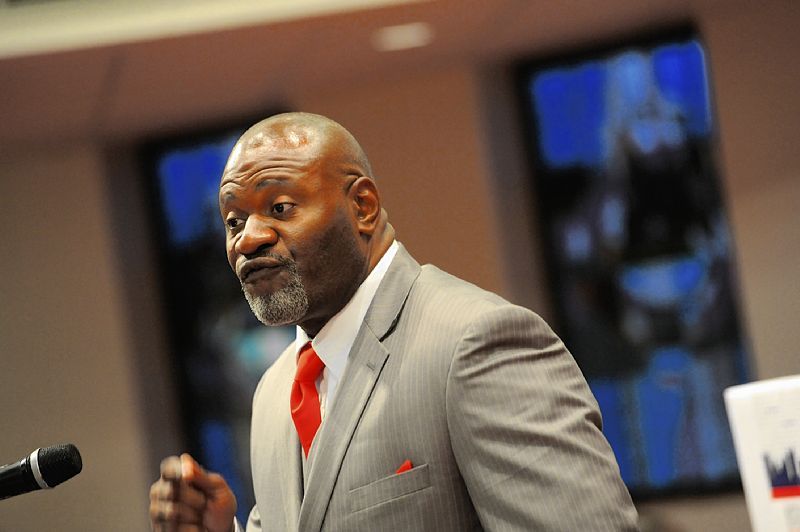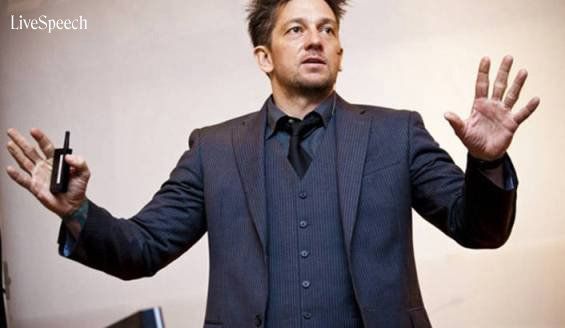Public speaking is when you stand before an audience and deliver a speech on a topic. This could be at a formal or an informal occasion. For many people, speaking in front of a large audience is a daunting task, so it is quite natural to become very nervous (with effective training this fear could be overcome).
As public speaking has become a serious career option, many people are enrolling for public speaking classes where they are taught skills and techniques to speak well and speak effectively before a gathering. However, to be a good speaker, you should know the four types of public speaking and their peculiarities.
1. Speaking to Inform
When you give a speech before an audience to impart information on a particular topic or issue, it is said to be an informative speech. Business presentations, seminars in colleges, class presentations in schools are some examples of informative speeches.
A person preparing for an informative speech has to research the subject or topic very well. It should be short and precise because long informative speeches (e.g. lectures) can easily bore your audience. The success of an informative speech will depend on how much the audience could understand from the speech.
The burden of excellence here are the accuracy of your content and your credibility as the messenger. People need to be able to trust the information that they're getting from you.
2. Speaking to Persuade
Persuasive speeches are those where you try to change the way your audience views an idea or product or person and so on. These speeches aim to influence and change their opinions to either favour or disfavour the subject matter. This can be a difficult task, as you might be facing a group of people who may hold very different views from your own.
If you want to influence other people's views and ideas, the most important point to keep in mind here is that you have to show your enthusiasm while speaking. Yet, you must remember that you are not there to wage a war and so you should speak without hurting their feelings.
Persuasive speeches are often given by sales and marketing people to attract interest in their products. They are also used to influence political and religious views.
3. Speaking to Actuate
Speaking to actuate is a higher level of persuasive speaking. Here, the speaker goes a step beyond persuasion and convincing. The aim is to motivate people enough to take a specific step—to act. This is a powerful level of speaking. Very few people have achieved this level of mastery of the art of persuasion where they could so deeply convince people to move into action.
This type of speech is useful in conflict situations like war. It is also seen in action when a speaker not only tries to gather support for a cause or advocacy but also wants the people he’s speaking to to join him in actualising it through concrete action. It is characterised by a show of charisma, very vivid words, strong appeal to emotional triggers, and a display of personal conviction.
A speech to actuate typically does not rely on facts and figures, though they may be offered. The speaker’s aim is to get his listeners so emotionally agitated that they wholesomely adopt his idea, his principles, his reasoning, as theirs, and literally take up the cross and share his burden. Sometimes, listeners may be so deeply moved that they take up the cause more seriously than even the person who invited them into it! This is the pinnacle of persuasive speaking and, indeed, of public speaking.
4. Speaking to Entertain
Ceremonial speeches are another form of public speaking usually given at weddings, funerals, graduation parties, retirement parties etc. One very important factor to make these speeches effective is to add a personal touch.
You will likely give a ceremonial speech for people you know. If it is a ceremony in honour of a person, such as a wedding or a birthday party or a send-off party for a retiring colleague, it is useful to bring in personal stories or recall events about the celebrant. The speech can be humorous or emotional, to suit the mood of the occasion. You must take care not to hurt feelings by making snide remarks at this occasion. Remember, your audience are gathered to have a good time. Do not ruin the atmosphere.
Conclusion
Public speaking is a skill that is best mastered through sustained practice. A talkative person may not necessarily be an eloquent speaker. To give a great speech, you must understand the type of speech you are expected to give, and prepare along those lines. An effective public speaker understands the needs of the audience and is flexible enough to adopt changes that may arise even while delivering the speech.










